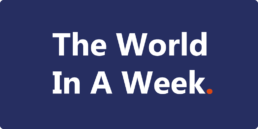Cliff Patterson Shares his Views on Beaufort Investment
Congratulations to the Beaufort Investment team who have worked really hard to win Best Discretionary Fund Manager at the Money Marketing awards 2019. This wonderful news has been shared with our Clients and we have received some positive feedback, one in particular being from Cliff Patterson, Compliance and Operations Director at AV Trinity Limited. Thank you for your kind words Cliff.
"When recommending any DFM to our clients, we have a preference for local firms, with whom we can meet face to face and have close contact with throughout our relationship. We also like any firm we recommend to be aligned to our ethos and culture of not taking undue risks with our client’s investments and pension funds.
We started recommending Beaufort Investment to appropriate clients around 3 years ago. We already had high regard of Emma Clarke from previous experience of dealing with her. In addition, one of our Charted Financial Planning team had very positive experience of Beaufort Investment’s performance and philosophy and so we invited the team in to further understand the portfolios.
We particularly like the make up and the performance of the enhanced passive portfolio range as this delivers to our clients excellent diversification, tactical asset allocation and sector specific passives at a competitive cost.
Emma and Shane Balkham, the CIO, have always been readily available and stay in close touch to support our team and to help us fully understand the proposition.
We are really pleased that we took the decision to include Beaufort Investment as part of our wider investment proposition."
The World In A Week - An Outbreak of a Truce
The most notable story of the past week was arguably the breakout of a truce in the escalating trade war between the United States and China on Saturday following talks at the G20 meeting in Japan. The outcome was broadly in line with the market’s assumptions for the conference, global equities finished the week down -0.16% in GBP terms while UK equities rose +0.36%. Global bonds provided a nice hedge to the equity sell off and rose +0.23%, while Sterling bonds rose +0.01%. Sterling rose in value against the dollar over the course of the week, while the Euro strengthened against the Pound.
Expectations regarding the actions of major central banks have been the other major force driving markets recently. The assumption that the Federal Reserve will continue to cut rates to stimulate the economy has provided some support to markets in the face of the ongoing trade war – allowing the US equity market to remain flat since the commencement of the trade dispute in May.
As we continue into the second half of the year, we remain aware of the reality that trade is now being employed as an instrument of foreign policy and remain cautious in our asset allocation, given the increased tail-risks this new-normal brings with it.
Money Marketing Awards - Best DFM
I am delighted to confirm that Beaufort Investment won Best DFM at the Money Marketing Awards 2019 last night. This is an incredible achievement for us and we were up against some stiff competition!
Having hit a key milestone in AUM this month and with the launch of the Multi-Asset Blend Funds set for 1st July, Beaufort Investment is the DFM we set out to provide in the marketplace.



The World In A Week - How Low Can You Go?
The US Federal Open Market Committee (FOMC) kept interest rates on hold last week. Despite an inordinate amount of pressure from Trump to cut rates and elements of US market data signalling a need for loosening of monetary policy, Jerome Powell, Chairman of The Fed, stood firm.
This current situation can only be described as having the key ingredients for a blockbuster movie... not only has the President of the United States explored if he has the ability to sack the Chairman of The Fed, he is also fully embroiled in a trade war with China, which thus far, has resulted in billions of US dollars in lost revenue on both sides of the globe. Powell is certainly stuck between a rock and a hard place; he is in the unenviable position of managing interest rate expectations while Trump continues to bully The Fed to cut rates.
While there was no interest rate rise in June, which is a sensible move, as The Fed must show independence from politics, it is likely that pressure to cut will continue to mount over the coming months. Powell’s speech was certainly more dovish showing a marked shift in language. The Fed Chairman had previously described the committee’s approach to assessing economic data as “patient” however, Powell highlighted that “uncertainties around this outlook increased” i.e. the darkening outlook trade wars with China is having on the economy, coupled with muted inflation means that the committee “will act as appropriate to sustain expansion”.
The question is “how low can The Fed go?” with two interest rate cuts a high possibility in 2019, we could expect as many as three or four before the end of the year; although the current probability of any of these moves is below 40%, which means that markets will take some comfort, for now at least, that The Fed will remain accommodative, which will support markets.
In a move away from monetary policy, which I am sure Powell will no doubt be thankful for, the global focus will shift away from the US to the G20 summit, which will be held from 28th-29th June. Japan will host their first ever G20 summit in Osaka and it’s expected that tensions around trade wars could escalate further.
Beaufort Investment to launch its own Funds
Beaufort Investment to launch its own Funds
Beaufort Investment, the discretionary fund manager, part of the Beaufort Group of Companies, has launched its own Funds. The Open-Ended Investment Company initially comprises two sub-funds; Multi-Asset Blend Balanced Fund and Multi-Asset Blend Growth Fund.
The Funds will be managed by Beaufort Investment’s long-standing team of professionals, which has an industry leading track record managing Model Portfolios going back to 2004. The MAB Balanced Fund will have a neutral weighting to equity of 50% with the ability to deviate between 40% and 60% exposure. The MAB Growth Fund will have a neutral weighting to equity of 80% with the ability to deviate between 70% and 90% exposure.
The remaining exposure in each fund will comprise a wide variety of asset classes including bonds, property and alternatives. IFSL will be the ACD and HSBC the Custodian. The firm plans to add further sub-funds in due course. The Funds will be distributed through Financial Advisers, intermediaries and will be available directly.
Shane Balkham, Chief Investment Officer, said “It is a natural development for our investment proposition. Over the past 15 years we successfully expanded our range to include active, passive, income and ethical model portfolios. We have invested in our team and our increased capacity will enable the Funds to bring together the best elements from our skill sets.”
Derrick Dunne, Chief Executive Officer, said “This is a very exciting time for our firm, our advisers and our clients. The firm has delivered on performance and risk objectives for clients since 2004 with our model portfolios. This is the next step in our evolution. Clients will gain from lower fees, a wider investment spectrum and more efficient tax management and trading. Our advisers and their clients will receive monthly reporting with full look through on the underlying investments.”
The World In A Week - Under Pressure
As the mercury rises in the barometers of economic and political hallways, pressure builds across the globe. The rhetoric from policymakers at the beginning of the year has begun to wane and with it, sentiment has dropped. Investors and markets alike need to see significant improvement from a series of geopolitical concerns, which intensified last week.
We begin with the most erratic pressure point, President Trump. The escalating trade tensions between China and the US arguably worsened, with Trump admitting the ball currently sits in his side of the court. Trump wants to see further concessions from China, he also wants President Xi to arrange to meet with him at the G20 summit next week. If not, then he has threatened to impose tariffs of 25% or much higher.
China’s woes do not end there. Tensions in Hong Kong overflowed, and government offices were forced to close due to the ferocity of the clashes between the police and protestors, over the proposed extradition law. The timing could not have been worse, as Hong Kong’s economy has slowed to a pace not seen since the Global Financial Crisis.
Pressure continues to be added with the attacks on oil tankers in the Gulf of Oman, with suspicion and growing evidence of Iran’s involvement. The unknown element is what will be the response? Response is key to all these pressure points, particularly when it comes to the health of the US economy.
Consumer prices in the US, a key measure of inflation for the Federal Reserve, was broadly flat for May, increasing pressure on the Federal Reserve to cut interest rates. Their next meeting to discuss monetary policy is this week, and with pressure building in the form of data reports and political tweeting, the odds of a rate cut are swelling. We think the Federal Open Market Committee will want to assess the employment data for June, to verify the slowdown in the US labour market before pulling the trigger. That would mean an interest rate cut being announced next month, which when can you consider 12 months ago we were looking at a continuing of tightening in monetary policy, sentiment has swung around completely.
It is worth adding that it is extremely rare for the US central bank to adjust interest rates during a Presidential Election year, so Jerome Powell has just six months to get interest rates to a level that he deems appropriate.
Different protagonists under pressure. Which of these will be resolved during the summer? The markets are looking for another measure of goodwill from the policymakers and hoping the politicians can avoid making matters worse. A nice break from the homegrown issues we currently have in the UK.
The World In A Week - The UK / US Alliance
Last week the US and UK commemorated and celebrated their historic alliance and friendship. The week included the rarity of both the D-Day commemorations of World War Two as well as the US President’s State Visit.
Both occasions demonstrated the continuing bond between the two countries. One focused on humanity and the enormous courage and personal sacrifice made to defeat Nazi tyranny, and the other focused on their relationship and their bilateral approach going forward.
Much can be written about the importance and the success of both of these occasions. For the investment community though, there was one stand-out development.
At his press conference the President emphasised his keenness for a free trade deal with the UK. He claimed there could be ‘2 and 3 times of what we’re doing right now’. This builds on his previous comments that his administration would ‘work on it very, very quickly.’
This will be very welcomed by investors in the UK, especially at a time when many are concerned with Brexit, as this demonstrates the UK’s trade appeal and thus the potential for such trade deals to be replicated globally too.
It should be noted; the UK and the US are the largest investors in each other’s countries (as measured by total Foreign Direct Investment). For example, as at 2017, the UK had invested $541bn in the US and the US had invested $750bn in the UK.
Regarding trade, as at 2018, the UK had a $5.4bn goods deficit with the US and a $14.5bn services deficit too thus an overall trade deficit of $19.9bn with the US. This is likely to be something the UK will aim to address in any free trade agreement.
It was a successful and welcome week for both countries that also demonstrated the importance and enjoyment of good relations.
Comment on LF Woodford Equity Income Fund
In light of the suspension of the LF Woodford Equity Income Fund, the investment team would like to reassure our clients that we do not, and have not, invested in the LF Woodford Equity Income Fund within the Beaufort Investment Model Portfolios.
Beaufort Investment Team
June 2019
The World In A Week - Mexican Standoff
Markets faced a tough week as a risk-off environment prevailed. The Pound Sterling fell against all major global currencies. Bond markets rallied across the world, with the Bloomberg Barclays Global Aggregate Index (hedged to GBP) returning +0.63%, while Sterling Denominated Investment Grade Bonds returned +0.27%. Equities suffered across the globe. The MSCI ACWI Index of world markets returned -1.20% in GBP terms, this was led by the US market, which fell -1.91%. Value stocks underperformed growth stocks -1.54% vs -0.87%.
This downside volatility was driven by a number of events, most of which stemmed from the Oval Office. The continuing trade tensions between China and the United States spurred a move out of Equities and into perceived safe assets. The German 10 year Bund yield traded at -0.16% on Tuesday, with the 10 year US Treasury yield touching a fresh two-year low on Friday. In what Bloomberg described as a “true black swan event”, President Trump suddenly threatened to slap a five percent tariff on all Mexican imports unless it stepped up efforts to stop illegal migration. Tariffs are increasingly being employed by the President as a weapon of policy, across multiple fronts.
In spite of the bluster from 1600 Pennsylvania Ave, US stocks remain very much in favour on a global basis. The gap between the valuation of US Equity markets and the rest of the world is at record highs. As a result, many investors are looking for ways to protect against a falling dollar and/or falls in the value of the Equity market itself. Local Currency Emerging Market bonds may offer such protection and are becoming increasingly popular with GBP based investors.




The World In A Week - When less is more (Italy’s income tax)
Is it possible for a government to increase its total tax receipt by cutting taxes?
Italy’s government believes this is the case and they risked incurring a EUR 3 billion fine from the EU last Tuesday for pursuing it. In the end, the EU abandoned the fine but it remains sceptical of Italy’s approach.
The issue is that Italy’s debt-to-GDP ratio is 132% and this is an infringement of the EU’s 60% limit. As well as this, the EU projects Italy’s 2.1% budget deficit to surpass its 3% limit thus exacerbating the debt problem.
With Italy’s economy at near recessionary levels (for example it edged into recession in the last half of 2018 and had a limp 0.1% growth in the first quarter of 2019) it is very difficult for Italy to generate the tax receipts needed to reduce its debt. The Italian government argues a fresh, dynamic approach is needed.
Italy is run by the coalition of Northern League (Lega Nord) and the Five Star Movement. The government advocates a flat income tax rate of 15% for those earning less than EUR 50,000. As reported by the Daily Telegraph, the Lega leader, Matteo Salvini, said ‘If Italians had more money in their pockets to spend, the economy would receive a kick-start and the national debt would be reduced.’
In 1974 the economist Arthur Laffer proposed that it is possible for income tax rates to be reduced and still increase overall tax revenue. He suggested that reducing income tax rates to an optimal level incentivises spending and investment, creates more jobs and taxpayers and thus increases total tax revenue. It has worked before, for example the UK government in the 1980s adopted this proposal and slashed income tax rates and total tax revenue grew.
The most important thing though is the optimal rate as cutting tax rates below the optimal rate will have the undesired effect of decreasing total tax revenue. It will be extremely interesting to see if cutting income tax rates to 15% for the masses works for Italy.